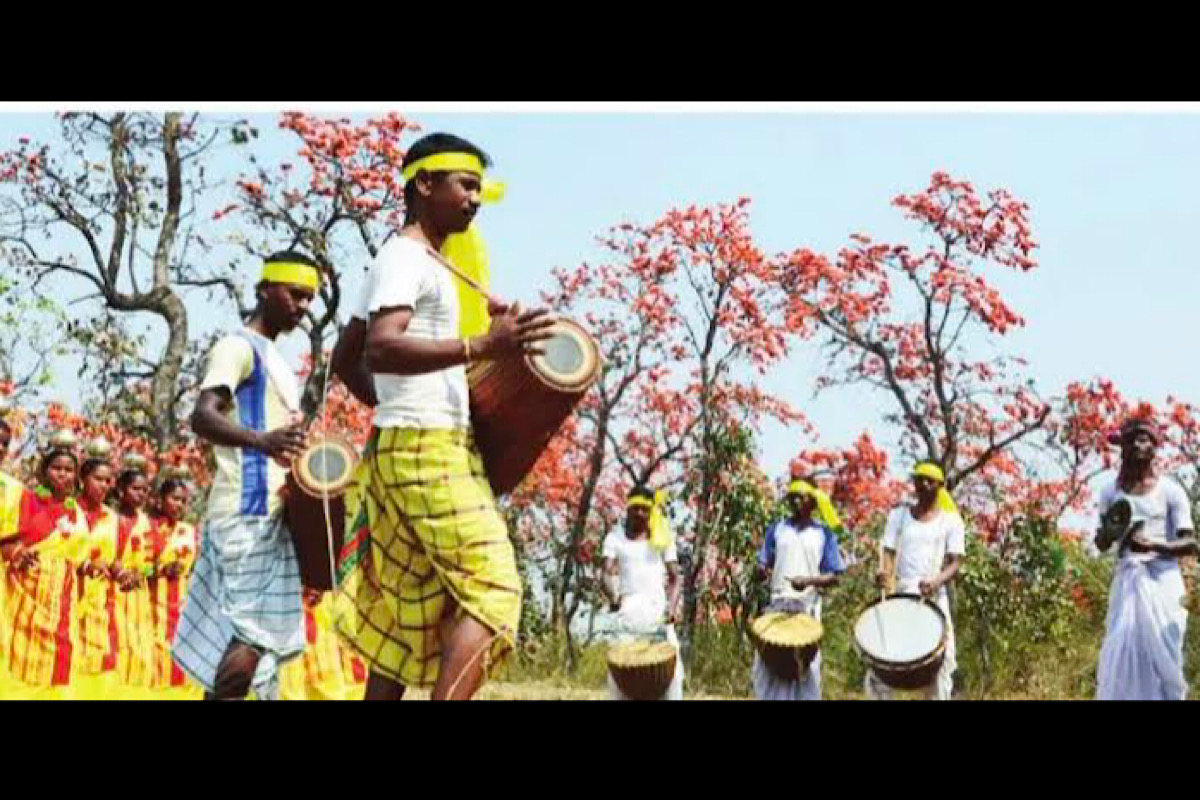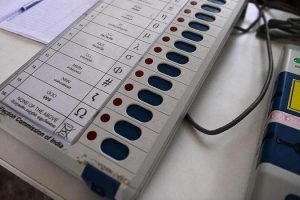In the diverse fabric of Indian literature, Adivasi literature is a genre left untouched by most intellectual critics and writers. In the name of preserving Adivasi culture – our society has only romanticised their songs and dances, their clothes and costumes but they never felt an urge to stand beside them when they were evicted from their lands. Have they ever tried to protect the oppressed, helpless Santhali women? In the pitch dark sky of the Adivasis, Hansda Sowvendra Shekhar emerged as a bright star. He gave voice to the voiceless, he made the inconspicuous marginalized world visible in his book “The Adivasi Will Not Dance” – which was published in 2015 and bagged the “Sahitya Akademi Yuva Puraskar”. In spite of winning such a prestigious award, the book remained almost unnoticed throughout all these years.
“The Adivasi Will Not Dance” is a collection of ten short stories (such as “They Eat Meat”, “November Is the Month of Migrations”, “Blue Baby”, “Merely a Whore”, “The Adivasi Will Not Dance” etc.) where the writer dealt with subjects like hunger, poverty, displacement, imposition of culture, religion and language etc. Unlike the intellectual aesthete, Hansda Sowvendra Shekhar scarcely paid any attention to the aesthetics of storytelling; rather he wrote and structured the stories with a harsh tone by portraying the strident reality of Santhals, to awaken the reader from slumber.

If we read the anthology chronologically, we will notice how Hansda Sowvendra Shekhar’s pen slowly intensified the plights of an unnoticed civilization with each story and how for the reader each story has become a distressful read. In the third story of the anthology – “November is The Month of Migration” – the author writes about Talamai Kisku – a twentyyear old Santhal girl who had to sell her body for fifty rupees and two cold bread pakoras to a RPF jawan. While she was moving to Namal from her village, a jawan offers her food and fifty rupees and Talamai gets ready to lie with the stranger because she was hungry. The author writes: “She just lies – passive, unthinking, unblinking – as cold as the paved ground she can feel through the thin fabric of the gamcha, as still as an inert earthen bowl into which a dark cloud empties itself.’’ The story is about hunger and utter poverty. Talamai’s plight is certainly a distressful read. We find ourselves helpless and speechless.
“Merely a Whore” tells the tale of a brothel. Many years earlier, the brothel-keeper, Jharna di was the mistress of a zamindar near Lakkhipur. After a devastating drought the farmers started moving away and the zamindars sold their properties to the mining farms. As a consequence, the outcast colonies slowly transformed into a red-light area. The author primarily weaves the story between two characters — Sona (a prostitute) and Nirmal (a regular customer). Nirmal was a regular customer of Jharna di’s brothel but never slept with any other girl. As time passed, Sona fell in love with Nirmal because no other customer used to talk and touch Sona as tenderly like Nirmal did. Sona dreamt that she would spend the rest of her life holding Nirmal’s hand. Her dream crumbled when Nirmal refused to give her the love she was asking for. Before getting married Nirmal visited Jharna di’s brothel but this time he chose the more attractive new girl Tina. Jharna Di understood everything and said to Sona in a sympathetic but stern voice: “Life teaches us lessons. Learn those lessons and move on.”
The book ends with the story named “The Adivasi Will Not Dance”. Written in the first person, the story is like the testimony of Mangal Murmu – who is a musician and a veteran farmer. He is writing the story sitting in a jail. He writes with rage: “We Adivasis will not dance anymore. We are like toys – someone presses our “ON” button, or turns a key in our backsides and we Santhals start beating rhythms on our tamak and tumdak.” Mangal Murmu’s detailed narratives dipped with his rageful emotion portray the miserable state of Santhals in Jharkhand. The coal mines in the suburbs of Jharkhand had evicted people from their villages in the name of development and painted everything black.
For Mangal Murmu, the colour black symbolizes the deplorable situation of his community – he writes: “Our children – dark-skinned as they are — are forever covered with fine black dust. When they cry, and tears stream down their faces, it seems as if a river is cutting across a droughtstricken land.” This short story is inspired by true events when Adivasi farmers were arrested and beaten black and blue by the police for protesting the building of the Jindal Power plant in Jharkhand, as then president Pranab Mukherjee laid the foundation stone.
Mangal Murmu was invited to perform in front of the president. On the day of that event, Mangal Murmu climbed on the stage and addressing the president he said in an indomitable voice: “Unless we are given back our homes and lands, we will not sing and dance. We Adivasis will not dance. The Adivasi will not… –” The story ends here. The police did not let Mangal Murmu speak. His voice goes unheard and unnoticed like the rest of his community.
Hansda Sowvendra Shekhar wrote all these short stories in the last decade and they appeared in various periodicals such as The Four Quarters Magazine, The Statesman, Northeast Review etc. The writer had to pay a hard price for writing these stories. He was accused of portraying the Santhal women in an obscene manner and suspended from his job. It was the writer’s commitment towards the community he represents which kept him writing. Hansda Sowvendra Shekhar is a literary figure of contemporary times who is not trying to secure his place in the intellectual space; rather he is trying to give a literary shape to the plight of an unnoticed community through his pen.
(The writer is a Master’s student of Comparative Literature at Jadavpur University.)












